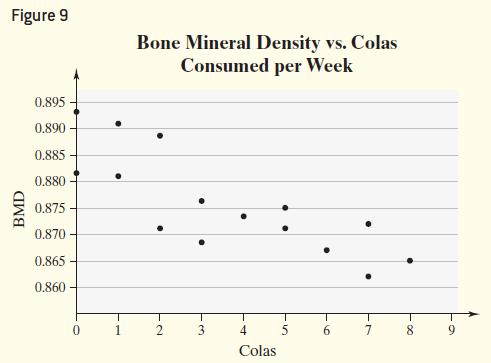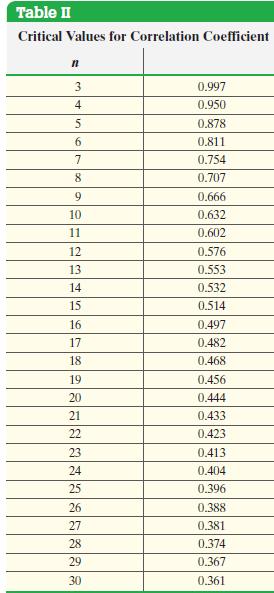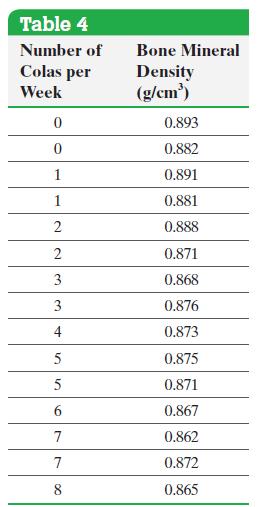Because colas tend to replace healthier beverages and colas contain caffeine and phosphoric acid, researchers Katherine L.
Question:
Because colas tend to replace healthier beverages and colas contain caffeine and phosphoric acid, researchers Katherine L. Tucker and associates wanted to know whether cola consumption is associated with lower bone mineral density in women. Table 4 lists the typical number of cans of cola consumed in a week and the femoral neck bone mineral density for a sample of 15 women. The data were collected through a prospective cohort study.
Figure 9 shows the scatter diagram of the data. The correlation between number of colas per week and bone mineral density is -0.806. The critical value for correlation with n = 15 from Table II in Appendix A is 0.514. Because 0 -0.806 0 7 0.514, we conclude a negative linear relation exists between number of colas consumed and bone mineral density. Can the authors conclude that an increase in the number of colas consumed causes a decrease in bone mineral density? Identify some lurking variables in the study.

Table II Appendix A


Approach To claim causality, we must collect the data through a designed experiment.
Remember, lurking variables are related to both the explanatory and response variables in a study.
Step by Step Answer:

Statistics Informed Decisions Using Data
ISBN: 9781292157115
5th Global Edition
Authors: Michael Sullivan





